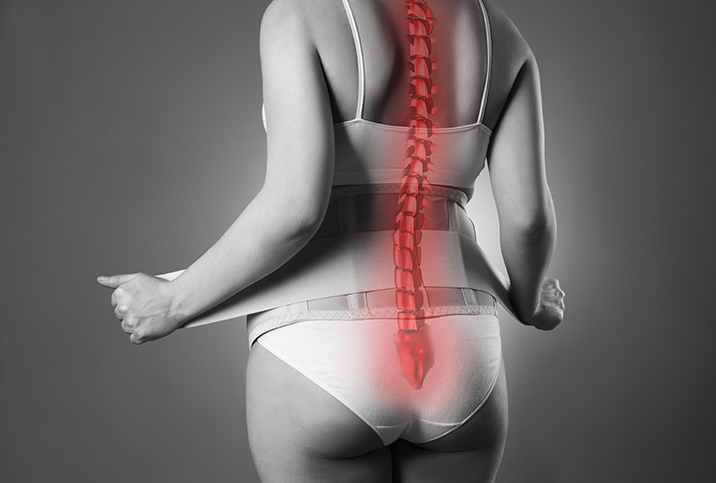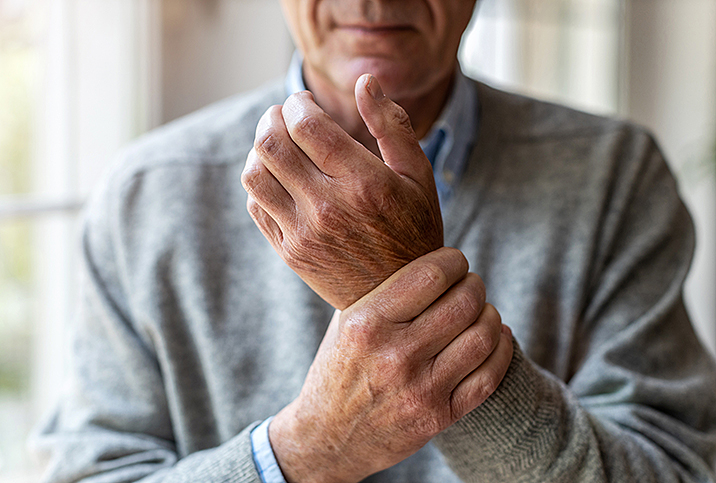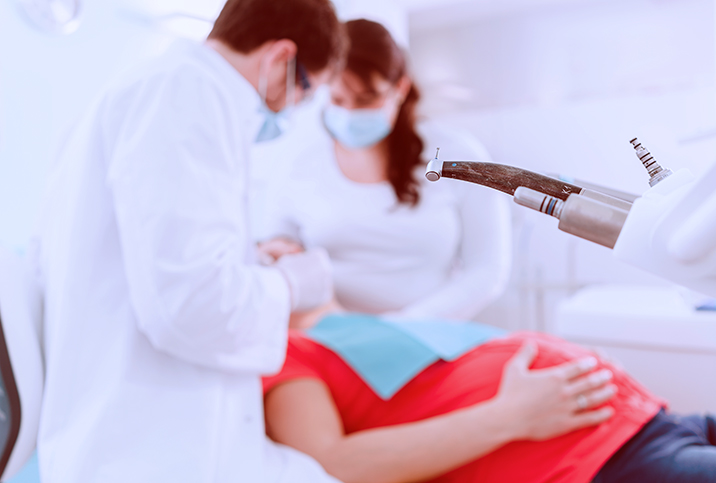Why Getting Enough Calcium During Pregnancy Is Important

Calcium is a necessary mineral for both a pregnant woman and her growing baby. This vital nutrient is needed by the fetus to mature and develop properly. If there isn't enough, the fetus will take what it needs from the mother's bones, which can lead to problems for the pregnant woman.
Fortunately, most women do not experience bone issues during pregnancy, and there are simple ways to make sure you're getting enough calcium to support both of you.
Why calcium is important
"The fetus needs calcium to form bones and teeth, and if the mother does not provide the required amount, the fetus will obtain it from her reserves, thus, generating calcium deficit in the mother," explained María Teresa Palacios, M.D., an OB-GYN who specializes in family planning and regenerative, aesthetic and functional surgery in Caracas, Venezuela.
"It's important for pregnant women to consume adequate amounts of calcium during pregnancy, as it supports the musculoskeletal, nervous and circulatory systems of both mother and baby," added Kecia Gaither, M.D., a board-certified OB-GYN and a maternal-fetal medicine expert in the Bronx, New York.
Vitamin D plays an important role, too
In addition to calcium levels, which can affect bone mineralization and composition, vitamin D levels are important, too, explained Maria Helena Tur Torres, M.D., an OB-GYN in Mallorca, Spain.
Vitamin D helps regulate calcium metabolism, acts as an immune regulator, and helps fetal growth and development, Tur Torres said.
Low levels of this vitamin—that is, below 30 nanograms per milliliter (ng/mL) of blood—have been linked to several pregnancy conditions, Tur Torres explained, including:
- Recurrent miscarriages
- Preeclampsia
- Gestational diabetes
- Growth restriction
Risks of low calcium levels in pregnancy
"Calcium is not made in the body and must be consumed with food," Gaither said. "Pregnant women who don't consume adequate amounts of calcium, and have a calcium deficiency, have an increased risk of developing pregnancy-induced hypertension/preeclampsia."
"Adequate intake of calcium during pregnancy helps prevent disorders such as preeclampsia, which can reduce the incidence of complications, such as preterm birth, neonatal morbidity and other serious complications," Palacios added.
Are some women more at risk?
Some women are at higher risk of developing calcium and vitamin D deficiency, Tur Torres stated, including women with:
- Unfavorable socioeconomic situations
- Intestinal malabsorption problems, especially chronic digestive pathologies
- Thyroid and parathyroid pathology
- Very low sun exposure
Palacios added that the pregnant women who are at greatest risk of having low calcium levels are those who:
- Have low dairy intake prior to gestation (vegans, women with intestinal absorption disorders or lactose intolerance)
- Are taking anti-seizure drugs, as these affect metabolism, vitamin D and calcium homeostasis
- Suffer from a chronic disease
- Have thyroid or parathyroid disorders
- Have a vitamin D deficiency
Pregnancy-associated osteoporosis
Some pregnant women are also prone to decalcification, osteoporosis and fractures during their baby's gestation.
Pregnancy-associated osteoporosis, also called transient osteoporosis in pregnancy, is rare and the cause is unclear. Women with this condition can break bones easily during pregnancy or following birth, according to the nonprofit organization Healthy Bones Australia.
Although the causes of pregnancy-associated osteoporosis are unknown, some risk factors have been linked to the condition, including:
- Digestive diseases
- A family history of osteoporosis
- Various bone conditions
- A history of eating disorders
Women with these conditions are encouraged to notify their gynecologist and visit a nutritionist before conceiving. This way, they can make a plan of action to protect their bones during pregnancy and lactation.
Can bone health be restored after pregnancy?
To reiterate, most women do not experience bone issues during pregnancy. Fortunately, for those who do, their bone health can typically be restored in the months following birth.
However, some experts suggest that decalcification during pregnancy could impact women's bones later in life and increase the risk of osteoporosis after menopause.
It's important to note that researchers have conflicting opinions on whether pregnancy influences maternal bone density and osteoporosis development. Some research indicates pregnancy and breastfeeding both increase the risk of osteoporosis later in life. But other research suggests the opposite.
"Numerous studies have investigated on the issue, but there is no consensus about the contributory effect of pregnancy and lactation on osteoporosis," wrote the authors of a 2014 systematic review of the literature on this topic published in the Journal of Family and Reproductive Health. Further research is needed on the topic.
How to get enough calcium
"During pregnancy, 1,000 milligrams of calcium should be consumed daily," Gaither recommended.
Dairy products, such as milk, yogurt and cheese, are high in calcium. If you are lactose-intolerant, you can consume other foods that provide calcium. Some of the most calcium-rich foods include:
- Chickpeas
- Soybeans (edamame)
- Nuts, including almonds, hazelnuts and walnuts
- Leafy green vegetables, including cooked kale, beans, green cabbage, spinach, broccoli and arugula
- Orange juice
- Chia seeds
Typically, increasing calcium intake in the diet is enough, Palacios said. However, hypertensive patients who have a high risk of preeclampsia or those with low calcium levels may need calcium supplements, she added.
Fortunately, calcium supplements are inexpensive and can be found over the counter in most pharmacies and grocery stores. Remember, though, that you should always consult your doctor before adding a supplement to your diet. Your physician can ensure you're taking the right dosage and that the supplement won't interfere with any health conditions or other medications you're currently taking.
Ideally, you should consume a balanced diet that provides you with the nutrients you need during pregnancy. If necessary, take a supplement to help you reach an adequate amount. A proper diet can help you maintain healthy levels of calcium and ensure your bones are just as supported as your growing baby's.


















